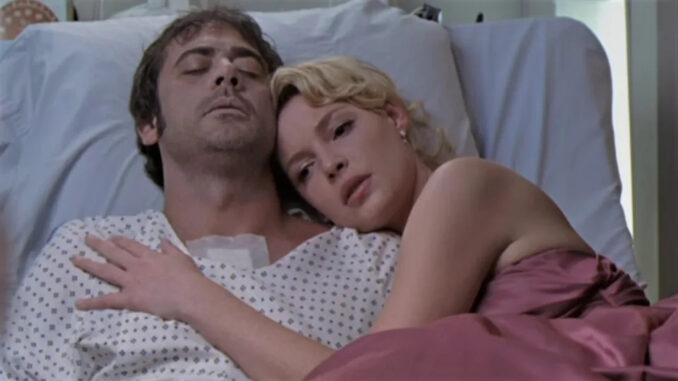
The Martini Moment: Katherine Heigl and the Scene That Shook Up Her World
Katherine Heigl was on top of the world. "Grey's Anatomy" had catapulted her to household name status. Emmy in hand, she was adored for her portrayal of the empathetic and fiercely independent Dr. Izzie Stevens. Then came "Knocked Up," a raunchy comedy that cemented her place as a rom-com darling, capable of balancing vulnerability with comedic timing. But within a few years, the trajectory of her career would drastically shift, seemingly fueled by a single, highly publicized moment: her comments about "Knocked Up." It wasn't just a bad review or a failed project; it was a perceived betrayal of the creative process, a public critique that reverberated through Hollywood and redefined the narrative surrounding Katherine Heigl. This essay will explore that martini-fueled moment, examining its context, its consequences, and the enduring legacy it has left on Heigl's career.
The infamous moment came in a 2007 Vanity Fair interview. Heigl, ostensibly there to promote her flourishing career, used the opportunity to express her reservations about the finished product of "Knocked Up." "It was a little sexist," she declared, adding, "It painted the women as uptight and humorless, and it painted the men as lovable, goofy, fun-loving guys.” The comment, while seemingly a candid assessment of the film's gender dynamics, ignited a firestorm. At its core, it was interpreted as a direct affront to Judd Apatow, the writer-director behind "Knocked Up," a man revered for his comedic genius and influence in the industry.
The timing couldn't have been worse. Heigl was at the height of her fame, and Hollywood, then as now, thrives on a carefully curated image of harmonious collaboration. Criticizing the work of a powerful director, particularly after benefiting from its success, was seen as not only ungrateful but also professionally reckless. The perception solidified that Heigl was difficult, demanding, and perhaps, a touch arrogant. This narrative was further compounded by later incidents, like her withdrawal from Emmy consideration for "Grey's Anatomy," citing that she didn't feel the writing warranted a nomination. While arguably honest and reflective of her own artistic standards, it reinforced the image of someone who wasn't afraid to bite the hand that fed her.
The consequences were palpable. While Heigl continued to star in rom-coms, the box office numbers began to dwindle. Her roles became increasingly generic, lacking the depth and complexity that had initially drawn audiences to her. The industry, known for its long memory and whispers behind closed doors, seemed to be hesitant to fully embrace her. The "difficult" label, once attached, proved stubbornly resistant to removal.
Beyond the immediate professional setbacks, the "Knocked Up" moment exposed a deeper societal issue – the often-unspoken double standard faced by women in Hollywood. While male actors are often lauded for being outspoken and challenging authority, female actors are often penalized for expressing similar opinions. Heigl's honesty, regardless of whether one agrees with her assessment of "Knocked Up," was framed as a character flaw, a sign of unprofessionalism, while a male actor making a similar critique might have been considered refreshingly honest.
However, the narrative surrounding Heigl has slowly started to shift in recent years. In interviews, she has been open about the toll the backlash took on her mental health and career. She has expressed regret for the way her comments were delivered, acknowledging the impact they had on Apatow and the "Knocked Up" team. She has also become more vocal about the pressures faced by women in Hollywood, lending her voice to conversations about pay equity and the challenges of balancing family and career.
This more nuanced understanding of Heigl's perspective has allowed for a reassessment of her work and her place in the industry. She has taken on more challenging roles in television and film, proving that she is still a capable and talented actress. Her recent work in the series "Firefly Lane" and the film "Fear of Rain" demonstrates a commitment to exploring complex characters and pushing beyond the rom-com archetype.
In conclusion, the "Knocked Up" incident was undoubtedly a turning point in Katherine Heigl's career, a martini-fueled moment that sent ripples through Hollywood. It served as a stark reminder of the power of public perception, the importance of navigating the delicate power dynamics of the industry, and the double standard that often exists for women in Hollywood. While the incident undoubtedly had a lasting impact, Heigl's resilience, honesty, and continued commitment to her craft suggest that the final chapter of her story has yet to be written. The "Knocked Up" moment might have shaken things up, but it also revealed a more complex and nuanced portrait of an actress navigating the turbulent waters of fame and fortune.